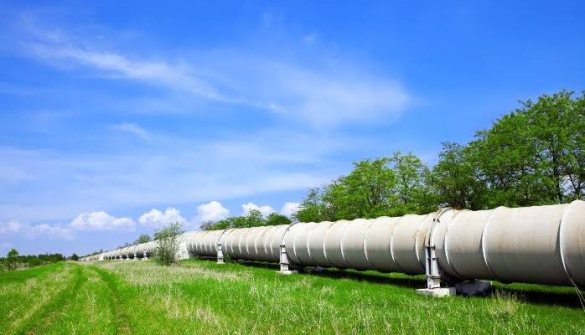As Canada braces for a potential labor dispute at its two main railroads, oil exports to the United States are expected to remain largely unaffected due to excess pipeline capacity, according to industry insiders. The looming strike or lockout at Canadian National Railway (CN) and Canadian Pacific Kansas City (CPKC) could disrupt various industries, but the energy sector appears well-prepared to navigate the challenges.
Pipeline Capacity Cushions Oil Exports
Despite the anticipated rail disruptions, experts suggest that Canadian oil exports to the U.S. will not face significant setbacks. Recent data from the U.S. Energy Information Administration indicates that rail imports of Canadian crude have declined sharply in recent years, with only about 55,000 barrels per day transported by rail as of May 2024. This figure represents the lowest level since the 2020 pandemic-induced price crash. In contrast, the U.S. imports approximately 4.2 million barrels per day from Canada, with the majority transported via pipelines.
The expansion of the Trans Mountain pipeline, which became operational in May 2024, has significantly increased the flow of crude from Alberta to the Pacific coast, nearly tripling its capacity to 890,000 barrels per day. This added capacity, along with available space on other pipelines, is expected to absorb any temporary disruptions in rail transport.
Jeremy Irwin, a senior oil markets analyst at Energy Aspects, highlighted the reduced reliance on rail for oil transport due to the expanded pipeline infrastructure. “Crude-by-rail is not as essential to the Canadian market as it was prior to the Trans Mountain expansion,” Irwin said. This shift in logistics has led to a relatively stable price for Western Canadian Select (WCS) crude, which settled at $12.25 a barrel below U.S. West Texas Intermediate crude for September delivery, compared to an average $18.65 discount in 2023.
Broader Industry Impact and Precautions
While oil exports may escape the brunt of the rail dispute, other industries could face more significant challenges. North American companies, including fertilizer supplier Nutrien and U.S. logistics firm C.H. Robinson, are preparing for potential disruptions that could cost the Canadian economy billions of dollars. CN and CPKC have already begun implementing measures to halt new shipments of hazardous materials, dangerous goods, and refrigerated containers.
The propane industry, which relies heavily on rail for domestic and export deliveries, could be particularly vulnerable. AltaGas’ Ridley Island Propane Export Terminal in British Columbia has reportedly stocked up on propane in anticipation of potential shortages. Additionally, companies that use diesel generators on job sites have been stockpiling fuel to mitigate the impact of a prolonged rail stoppage.
Canadian refineries, including Imperial Oil’s Strathcona, Suncor Energy’s Edmonton, Shell’s Scotford Complex, and Cenovus’ Lloydminster refinery, could also face challenges if a strike extends beyond two weeks. Some diesel supplies could be stranded at Alberta refineries, further complicating logistics.
Preparedness in the Face of Uncertainty
Despite the looming uncertainty, industry players are taking steps to minimize the impact of the potential rail disruptions. A spokesperson for Cenovus Energy confirmed that the company is closely monitoring the situation and has contingency plans in place. ConocoPhillips Canada also indicated that it has the flexibility to manage a sustained strike, with no expected impact on its Surmont oil-sands production.
As the Canadian oil and gas industry braces for the possible labor dispute, the resilience provided by expanded pipeline capacity and strategic preparations underscores the sector’s ability to adapt to logistical challenges. The outcome of the labor negotiations will be closely watched, but for now, the Canadian oil export market remains on solid ground.
Source: Reuters



